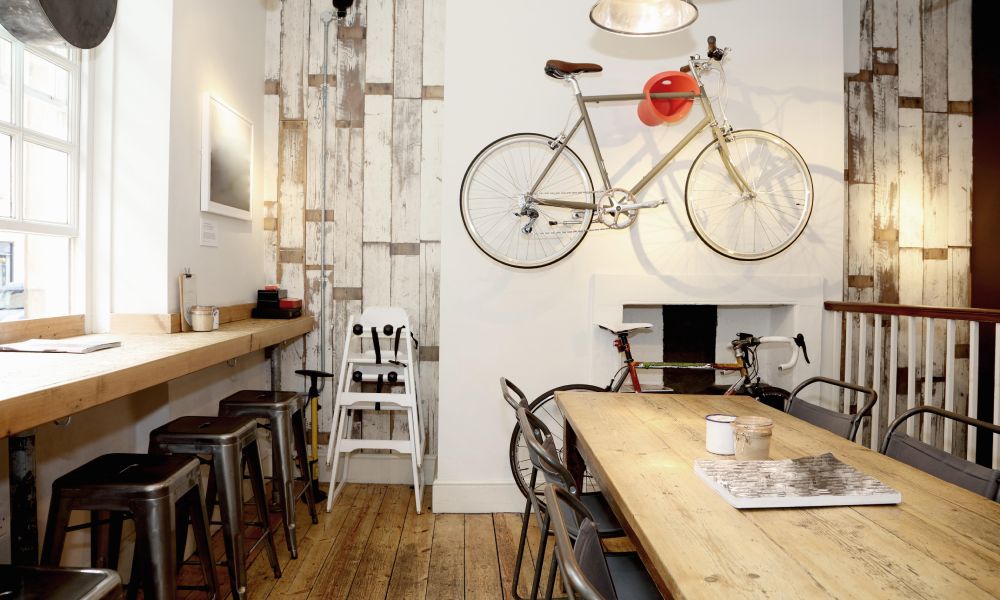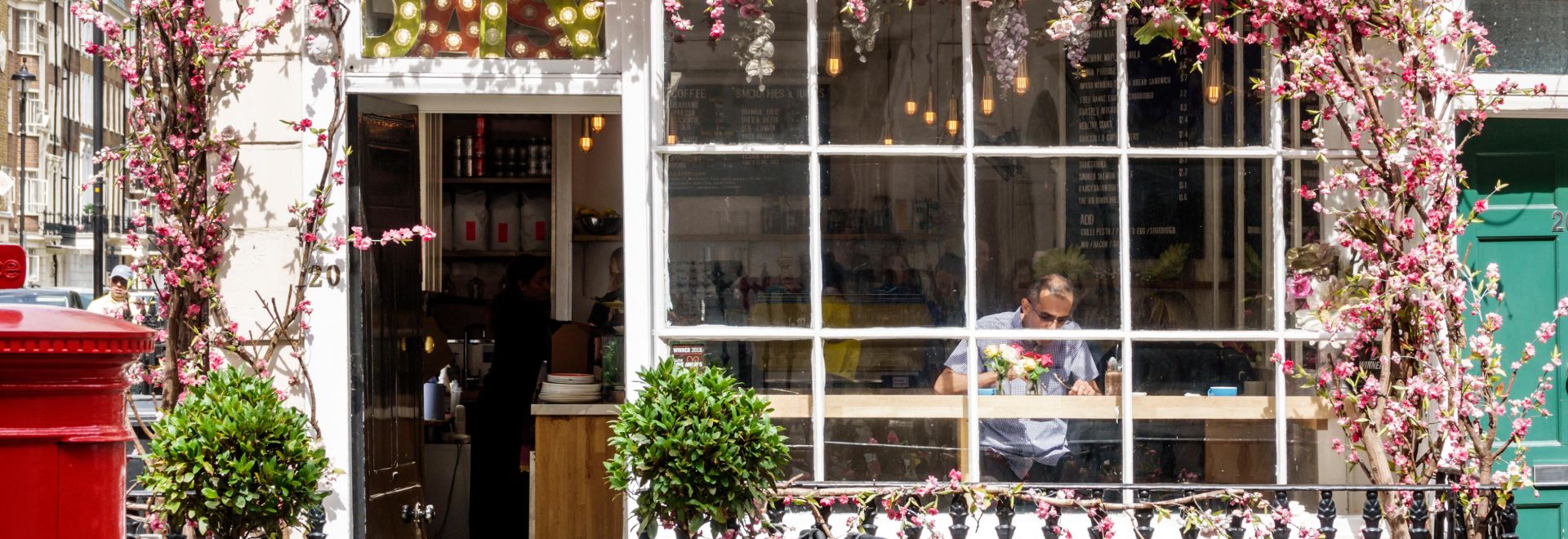How to build a brand identity for your coffee shop
Bronwyn Linkhorn speaks with two coffee shop owners about how building an authentic brand identity that resonates can pave the way to long-term success.
Brand identity is both an image people visualise and a feeling they get when interacting with a company. It encompasses several aspects of a brand’s existence, including its visual identity, its values, and the quality associated with its products. Overall, it enables a company to be recognisable to customers and distinguishable from other brands.
A strong, recognisable brand identity is important for coffee shops as it helps not only to attract new customers, but to retain them and build a loyal community. As such, coffee shops – and coffee brands in general – must tread the fine line between what consumers are looking for and what makes the brand unique.
Adrian Campbell-Howard is the owner of Society Café in Bath, UK. For him, brand identity is directly linked with consistency.
“It’s partly logos, but it’s more about the offering to the customers and their experience being consistent,” he explains. “The shop ‘fit out’ doesn’t have to be consistent – it’s more about the feeling. We try to make all our shops a little bit different, but there has to be some consistency so people know who we are.”
Brice Young, co-owner of Precision Pours in Boulder, Colorado, shares this sentiment.
“A brand should incorporate the people it supports and the community that surrounds that coffee shop,” he says.
He explains that the most important thing about brand identity is being original. However, he adds that it’s important to stay true to the unique values of the business without being overly influenced by “the general concept of what a cool coffee shop is”.
For all this, however, it can still be difficult to figure out exactly where to start, especially in an industry that’s constantly changing and adapting.

“It’s not just the food”
For any business, the aim when developing a brand’s identity is to create something that resonates with consumers, ultimately creating something they will recognise and relate to.
The first step for any budding business is to undertake detailed market research. This creates a genuine understanding of what customers are looking for from a coffee shop and frames the business against industry trends and what competitors are offering.
Furthermore, industry experience can also be extremely useful. Before he opened Society Café, Adrian worked in the hospitality industry, and this gave him valuable insight into what makes certain restaurants successful.
“What sets Michelin-starred restaurants apart from other restaurants is the quality of the offering across the board,” he explains. “It’s not just the food, but the decor, the ambience, and the music. Everything has been thought out to give the customer the very best possible experience, but we didn’t see that in coffee shops.”
This made him realise that for a coffee shop, the quality of both the coffee and its production must be central to its identity. At the same time, other elements like interior design and customer service cannot be neglected.
However, finding a starting point can be difficult. Some coffee shops choose to build their identity around their espresso machines, such as traditional Elektra coffee machines, to instil associations with quality at the heart of their brand.
Others may choose to build their vision the other way around, creating a visual theme first and then selecting equipment to match it. In some cases, businesses may choose to put convenience ahead of customer engagement, leveraging superautomatic coffee machines to streamline the consumer experience.
It’s crucial to establish a brand that is all-encompassing, including tangible assets like visual branding, but also the values, service level, and ethos of the business.
Ultimately, once the heart of the brand has been established, visual branding like logos and colours can be introduced. In this way, they become truly reflective of one another, creating a coffee brand that can double as a lifestyle brand.
Once a business has an all-encompassing idea of what it is, this comprehensive brand identity can be communicated both in the shop and across digital channels, building a presence in the minds of customers.
What to look out for when creating a brand identity
Although brand identity is essential, failing to understand your target audience can be a critical mistake and may even lead to brand collapse. As such, coffee shops need to pay attention to customer feedback, as this will identify areas for improvement.
“The most important thing – the thing that will bring you new customers and retain customers that you’ve already got – is simply looking after them better than anyone else,” Adrian explains.
Unlike large chains such as Starbucks whose brand identity is unchanging across the world, smaller chains or individual shops are able to tailor their approach and offerings depending on the community they are in.
Independent coffee shops must, therefore, be willing to make difficult decisions and change aspects of their brand when required. In fact, they may benefit from completely building their service around target consumers’ habits.
For example, emerging brands must be conscious of the future of coffee consumption. According to The Food Institute, it’s Millennials and Gen Zers who are fuelling the global boom in coffee sales. As such, new businesses may want to focus on these groups.
Without considering current industry trends like ready-to-drink (RTD) coffee, functional coffee drinks, and even coffee cocktails, new brands may fail before they even begin.
“Go out into the community that you want to be a part of,” Brice advises. “Interview the community, get to know them, ask if they would like a certain idea that you have in mind, and get to know the people closest to you.”
He adds that it’s also incredibly important for businesses to avoid comparing themselves to other brands. Inevitably, brand identity changes and develops over time, and it’s this dynamic nature that should guide business decisions.
At the end of the day, if coffee shops can remain in line with both customer expectations and industry trends – while presenting themselves as distinct from the competition – success will be far easier to come by.







